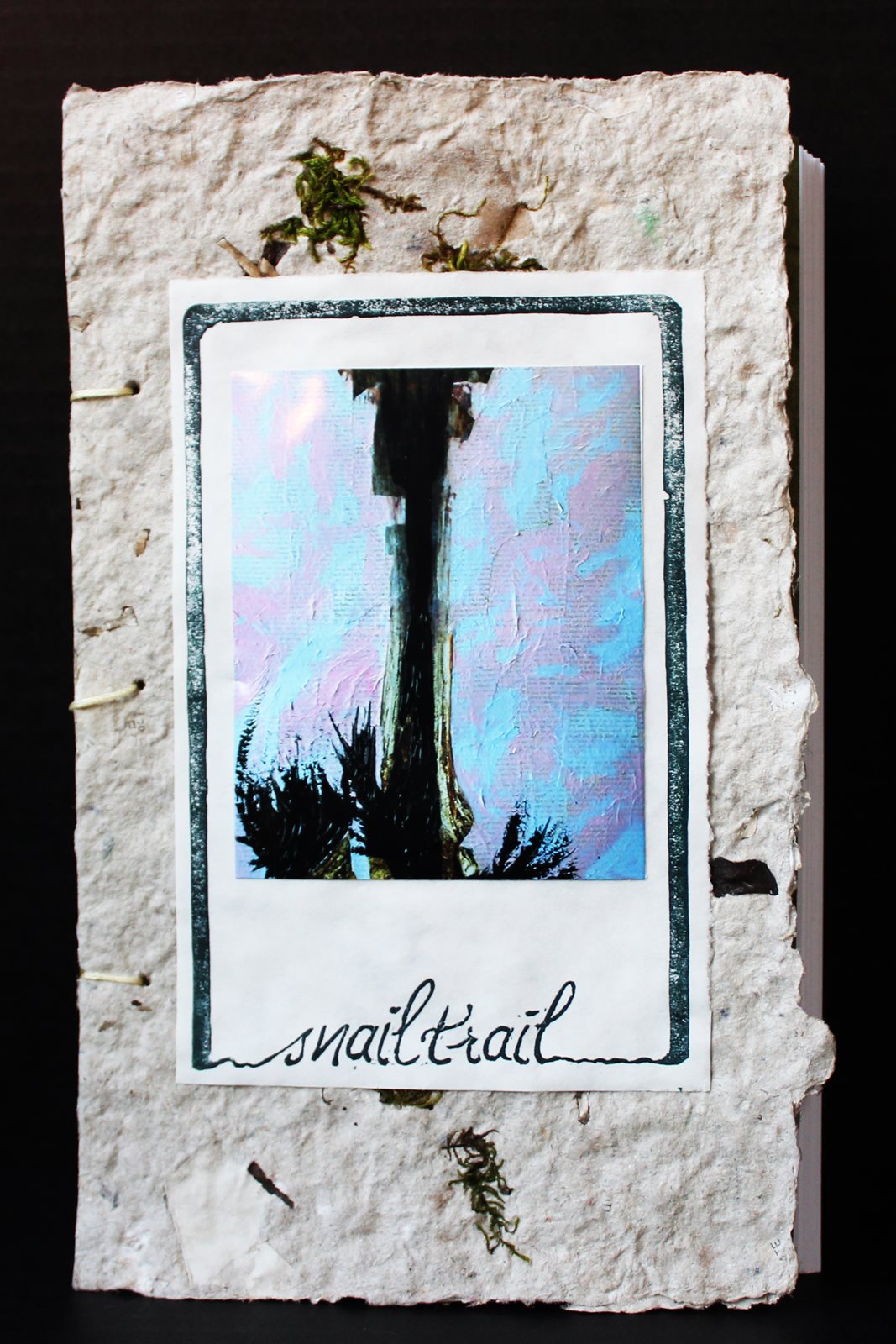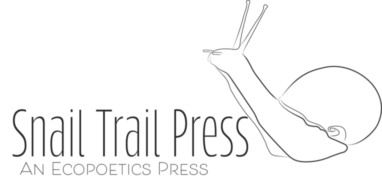Snail Trail: MFA graduates launch eco-poetics press and journal
Recent graduates of the MFA in Creative Writing & Poetics at University of Washington Bothell have launched a unique publication project, a small press and a hand-bound journal of ecopoetics entitled Snail Trail. Nurtured in the spaces of the MFA program, the journal had multiple inspirations. Eric Sneathen’s Snail Poems (Krupskaya, 2016). AFTER LIFE (what remains), an exhibition/experience exploring Asian Pacific American and Indigenous artists’ exploring precarity and persistence under environmental and military devastation (June/July 2018, Alice Gallery, Seattle). Through dialogue with one another and faculty members Woogee Bae, Aya Bram BonnLuders, and Amy Jones developed Snail Trail: an ecopoetics journal as a way to think about poetry and social change.

The title of the journal reflects “the ways in which small creatures, such as snails and oysters (to name a few), remain persistent despite their size, and how small, meaningful, supposedly insignificant things—such as poems—might shift our environments in radical ways,” according to Bae. “As editors, we came together to learn, extend care, uplift one another, and share resources. People have responded with their own small, loving gestures. Someone recently wrote that our journal is one of their favorite books to have “read and held (and rubbed against my cheek) in a while.”
As a group, the students relied on faculty expertise for guidance, enlisting Associate Director Amaranth Borsuk on small press publishing and book arts, and Thea Quiray Tagle, curator of AFTER LIFE (what remains) on ecopoetry. The structure of the MFA in Creative Writing & Poetics let them pursue this inquiry as part of their studies. “It’s been rewarding to see how something like this can be put together, says Jones. Now as graduates “we know that we can start our own creative communities and endeavors thanks to this groundwork of knowledge and mentorship.”
The collective proceeded to build a website, solicit contributions, and set a production timeline. They also evolved specific editorial and production roles, based on their particular strengths and interests. BonnLuders acts as designer, responsible for layout and visuals. As production manager, Jones makes sure that the materials used are as eco-friendly as possible, takes the lead on paper making and journal binding, and manages our budget. Bae manages submissions and timelines, proofreading, publicity, and outreach.
“Each of our departments aligns harmoniously. It all comes together very organically,” says BonnLuders. “Of course, our roles end up intersecting and we help each other out wherever we can. For example, we have journal binding parties when the publication date nears so that one person isn’t completely overwhelmed. And at the end of each submission period, the three of us come together to review submissions and collectively decide on which pieces to publish in our forthcoming issue,” adds Bae.
For the editors of Snail Trail, the process is as important as the product. While they can imagine branching out to produce broadsides, postcards, and other visual poetry displays, “Where we are right now is a really lovely place to be: being able to read poetry from writers we all love and building community in a way that is meaningful to us.”
Earlier cohorts of MFA students have also established small presses and journals. The strengths of the MFA in Creative Writing & Poetics in interdisciplinary arts and media supported the earlier development of Lette[r]Press and the journal Small Po[r]tions now an independent non-profit. Borsuk’s poetry and scholarship span print and digital media: she regularly teaches courses in Chapbooks and Artist’s Books, and her recent publication, The Book (MIT Press, 2018) examines the book historically and conceptually as object, content, idea, and interface.


